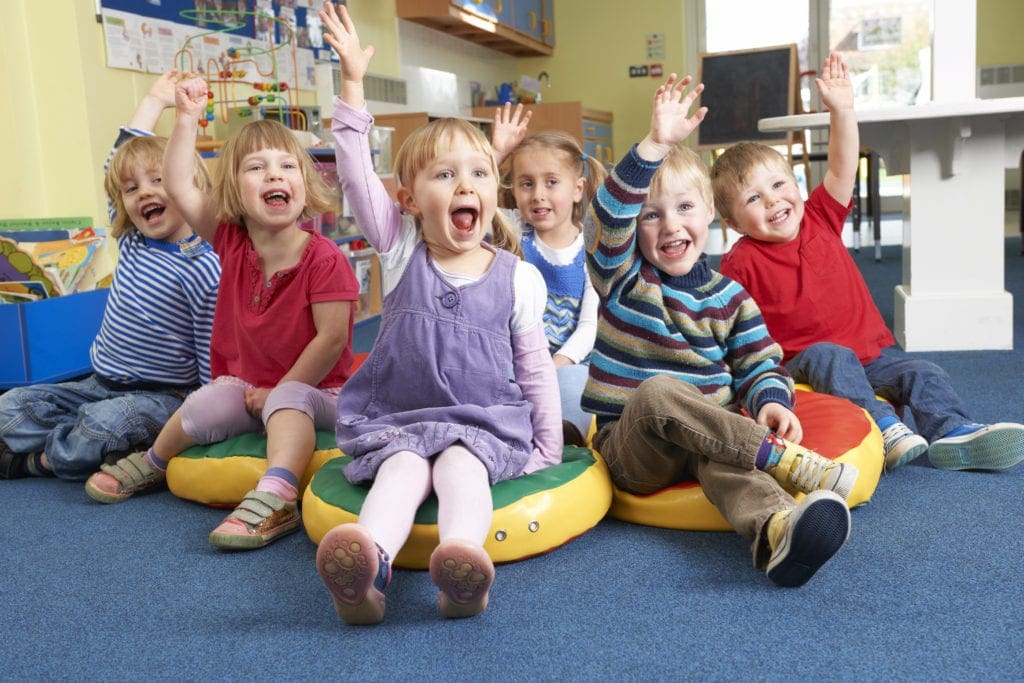According to the Australian Bureau of Statistics, the interest in kindergartens in Queensland has sky‑rocketed over the past five years. With attendance rates soaring from 29% in 2008 to 97.4% in 2013, what is increasingly attracting families to kindergarten environments?
In my casual conversations with the parents of young children, the general response is that children who undergo a kindergarten experience will be better prepared to enter the primary school classroom, having developed richer literacy and numeracy skills. This is a worthy response but, from an educator’s perspective, I encourage parents to think longer-term.
Much research has been conducted over the years in regard to the age at which formal education should begin. A study by Edward Melhuish of Oxford University highlights the significant positive effect that a kindergarten experience has on children’s literacy and numeracy levels at age 11. A research team in Chicago, headed by Arthur Reynolds, found through its 25-year study that the benefits of a kindergarten education are seen decades later through educational achievement, socioeconomic status, health and reduced crime. Recent studies are reaching the same conclusions: allowing for background factors, children who are exposed to a quality kindergarten education (age 3-4) are much more likely to excel later in life than those who are not. The benefits of a kindergarten education are long-lasting.
So what is it that a kindergarten education offers that is so valuable?
First and foremost, let’s be clear. A kindergarten education does not – in fact, can not – replace the priceless education that takes place in a child’s home. Parents are the primary educators of their children. What takes place in the family home is precious and irreplaceable. Kindergartens exist to deliver an education that complements the daily education received at home.
What should I look for in a good kindergarten?

In a quality kindergarten, qualified early childhood educators possess a sound knowledge of how young children learn. They are skilled in developing play-based experiences that are rich in learning, and they are trained to identify in children weaknesses that may affect their ability to access curriculum in the future. At kindergarten children explore their world – they learn about themselves and their individuality; they are encouraged to work as a team and they receive adult support in conflict resolution; they make friends and develop a love for learning; they take part in decision-making; they are exposed to the joys of success and encouraged to view failures a stepping stones; they identify, explore and solve problems; their confidence, curiosity, resourcefulness, persistence and courage are fostered; their fine and gross motor skills are exercised; and their literacy and numeracy skills are nurtured.
The enduring nature of a kindergarten experience is sustained only through a high-quality educational program. With so many options available to parents, selecting the program that best suits the needs of a family is overwhelming. My advice is simple: visit. When you enter the doors of a kindergarten facility, you will instantly get a feel for the culture of the place. Ask questions and absorb the answers. When you visit ‘the right’ place for your family, you will sense it – you’ll be stimulated and you will crave to become a part of it.
The world of kindergarten education is delightful and stimulating, and I encourage you to join the excitement for the long-term benefit of your child.
Jane Mueller
Jane is the Principal of Living Faith Lutheran Primary School and Kindergarten, on Brisbane’s north side. Jane is passionate about the long-term effects that a high-quality education has on Australia’s future generations, when the focus is just as heavily on the spiritual, social and emotional development of children, as it is on academic maturity.
This article was published in Issue 6 of our print magazine, October/November 2014.

